DAN SELLARS – Interview
Dan Sellers is originally from Wadesboro, North Carolina. He attended University of Charlotte, Class of 2007, and also attended University of Greensboro Class of 2009.
Dan also attended the Chicago School of Professional Psychology for graduate school. Dan created his production company, Wreak Havoc Productions about 6 years ago. He released his first film in 2014, HANK vs. THE UNDEAD, a zombie horror/comedy feature film. Dan also produced the documentary, SAMIE THE COMIC BOOK MAN and the documentary short, TROUBLE WILL CAUSE. He also produced MIDNIGHT SHIFT and COUNTDOWN TO MIDNIGHT. Havoc Productions also publishes podcasts and hosts an annual international film festival. Dan currently lives in Greensboro, North Carolina with his family and has plenty of film and writing projects he is currently working on.
Tony Northrup – What was it like growing up in North Carolina? Were you always a horror fan? And what was your first Stephen King book and film?
Dan Sellers – North Carolina is a fairly segmented place – geographically you’ve got very distinct types places from the Atlantic ocean to the Appalachian mountains, and very rural landscapes and big cities in between. But there’s also a darker side to North Carolina that I’ve always been intrigued with – it’s steeped in folklore and ghost tales, which was the inspiration of a podcast I produce called “Carolina Haints.” I’ve always been a horror fan, ever since I was a small child. I was allowed to watch all kinds of horror films and things that I probably shouldn’t have been exposed to, but was, and I’ve always gravitated toward dark and macabre things. The first Stephen King book I read was Different Seasons at the age of 13. At a young age I fell in love with The Shawshank Redemption and naturally sought out the source material. Which lead to reading other works of horror.
TN – What made you decide to go from Psychology to filmmaking? Share with us how your production company, Wreak Havoc Productions got started?
DS – I’ll answer both of these questions with this response. I’ve always been a film fanatic and even at a young age was fascinated by movies and filmmakers and the process of filmmaking. As a teenager, I even tried to make a horror film but that fell through, as so many projects do, unfortunately. However, as an adult, the idea of making a film just kept gnawing and pulling at me until I couldn’t ignore the urge. These days, the tools to make a film are very accessible to most people – with the technology being available, I really ran out of excuses to not follow that dream. In 2013, I set out to make my first film, a zombie-comedy horror film, which eventually became Hank vs. The Undead (2014) and it was essentially just an exercise in filmmaking. I just wanted the experience of making a film, and to learn just by the process of doing. And I absolutely learned a lot! I’ll never discourage anyone from attending film school or seeking some formal way of studying film, but for me, it took making a decision to make a film and to go through the steps of getting it done, to really learn. So, what started out as just a self-indulgent exercise has become a strong passion.
TN – You said you attempted a Stephen King Dollar Baby film, BEACHWORLD before you made UNCLE OTTO’S TRUCK, but it fell through. What did you do differently to get UNCLE OTTO’S TRUCK made this time?
DS – I was briefly involved in an adaptation of Beachworld as a producer. I was not involved in the day to day decision making and work on that film, which had not even gotten into production, besides some 2nd unit footage. The biggest thing I did differently with Uncle Otto was that I not only was the producer, but served as the Writer and Director as well.
TN – Out of all of the Stephen King short stories, what attracted you most to this story?
DS – I’ve always found myself attracted to stories of obsession. Vertigo is one of my all-time favorite films. Something just struck a chord with me about Uncle Otto that I couldn’t ignore. There’s also a playfulness to it that resonated with me as well. As I read the story, I couldn’t stop envisioning how I would make the film and I too became obsessed with getting the rights. I also loved the idea of telling a story that takes place in Castle Rock and being able to have fun in that little world that King created was just too much of a grand opportunity to pass up.
TN – What changes did you make to make this your own as opposed to King’s original text?
DS – There were quite a few things here and there that were modified or condensed from King’s story into my script. The most notable is the decision to change the narrator from Otto’s nephew to his niece. I thought that this was something that could easily be done without changing anything at the heart of the story. It just seemed to work better for the film too to have that male/female dynamic between the two main characters. Besides that, I think our film is a fairly close adaptation to King’s text.
TN – So many Stephen King fans want adaptations to be as close to the book as possible. How do you handle the pressure to keep those fans happy?
DS – I don’t worry at all about Stephen King fans. Primarily when I’m making a film, I’m concerned about pleasing myself as an audience member. I try to make films that I would like to see. My films are not for everyone, and Uncle Otto is no exception – it’s certainly based closely on King’s short story, but it’s through my filter and is my point of view. Not all King fans will likely love it and I’m Ok with that. The right people will enjoy it. Secondly, I was more concerned about making a film that Stephen King himself would enjoy and recognize as being a faithful or at least serviceable adaptation. I figured if I could make myself happy and then Mr. King, then his fanbase would follow along.
TN – What was your main goal you wanted to achieve about this film?
DS – My main goal was to simply make an enjoyable and entertaining film. Plain and simple. I knew we had great source material to use and I didn’t want to mess things up by half-assing it. I probably worked harder on it than anything else I’ve ever made and have pushed people harder and asked for them to deliver more than I’ve typically done. It was important to me to get the film right. That was really the main goal – just to do it well.
TN – Where was the movie filmed specifically and were there any obstacles you had to overcome while filming there?
DS – Principal photography took place in Patrick County, Virginia which is a very rural, mountain location. It was a beautiful place, but there was no running electricity, water or cell service. So that presented a ton of logistical issues that my producers and I had to work on tackling every day. It felt like camping a lot of the time but my cast and crew worked very hard during the shoot and we all made the best of it. The rest of the film was shot between a handful of locations in North Carolina including Mount Airy, Danbury, Madison and Greensboro.
TN – How long was the film shoot and process from start to finish?
DS – From the point of signing the contract with Mr. King to the premiere, it was right at a year. Pre-production by far was the longest stretch of this film. Finding the right shooting locations, casting, and finding the truck were all major hurdles. We also had a pretty significant crowdsourcing fundraiser that took several months to implement. But we reached our goal and raised $3000 to make the film. The main production was done over the course of four days while other scenes were shot over the course of several weeks. Once production was finished, I worked on the film in post-production for about six weeks. Between editing the film myself, recording ADR, working with a composer, etc. there was a tremendous amount of work being done in a short amount of time.
TN – What is your greatest moment so far with the success of UNCLE OTTO’S TRUCK?
DS – That’s hard to say because this has been such a great experience that it’s hard to choose a greatest moment. However, I’d have to say that there was a lot of relief in seeing a special effects apparatus operate as planned. We had spent a considerable amount of our budget on essentially one special effect shot and a lot was riding on it. Our amazing special effects supervisor, Matt Patterson created a mechanism that worked beautifully in the film. It was amazing to be on set and shooting this effect in person. Matt was so relieved once it was finished. I think the combination of seeing it work in person and seeing it work in-camera was a great feeling of success.
TN – What Stephen King story would you like to adapt on a larger scale?
DS – I honestly don’t have a good answer to this question. I have not thought about personally making another Stephen King adaptation until just now. However I was thinking the other day that I wish some talented filmmaker would remake The Dead Zone and do a really great job with it. I feel that we’re at an interesting time politically to see how that might play with a wide audience. Cronenberg’s 1983 adaptation is a particularly well-made film and one of my favorite King films, so whoever lands that task has their work cut out for them.
TN – Where did you get the actual truck used in the film and what happened to it when the film was finished?
DS – The truck’s name is Festus and it’s a local truck from the area in which we filmed the movie in Patrick County, Virginia. Festus’s owner was a very kind gentleman who assisted in a major way throughout filming. Festus was a running automobile which we were delighted to use. Initially we thought we would have to find a real derelict truck and have it towed to the set. But we got extraordinarily lucky to find Festus. I don’t know that luck had so much to do with it as the incredible producing skills of my producing partner, Sammie Cassell. He was the mastermind behind finding the truck and getting as much out of it as we did.
TN – Stephen King has had many films and television shows from his books adapted in North Carolina, such as; Firestarter, Silver Bullet, Maximum Overdrive, Under the Dome, and many others. What is it about North Carolina that brings filmmakers to your state to make their projects?
DS – That’s hard to say – at one point, NC was known as one of the biggest filmmaking states in the country. Due to some really bad political decisions to cut tax incentives in NC, most productions have moved to Georgia. My hometown was used to film Spielberg’s The Color Purple and the horror classic, Evil Dead 2. So it’s always been part of North Carolina lore for me. Having Screen Gem Studios in Wilmington helps – they’re currently filming Halloween Kills and soon, Halloween Ends there right now.
TN – Where can viewers see the film? Will it be playing at an film fests and if so, Where?Finally, What is next for Dan Sellers?
DS – We plan to submit Uncle Otto’s Truck to as many film festivals as we can afford. So far we’re 3 for 3 and I definitely hope to keep that streak up as long as I can. Audiences in North and South Carolina will be able to see it this month and next at the Horror Movie Freaks Film Festival, the Stranger Days Independent Film Festival and at AtomaCon Short Film Festival. We also plan to host a few free screenings around North Carolina over the next few months. I’m currently in talks to direct a short horror film here in NC. Besides that, I plan to spend the majority of the next year doing some writing. I’ve got a few feature length screenplays that I need to get on paper. There are also two books I’m working on that are both connected to ongoing projects of mine. I’m also very involved in the day to day running of my company, Wreak Havoc Productions. We’re readying a new film for its upcoming release, entitled Sea Salt Wind, and we have ongoing shows called the Wreak Havoc Production Film Buffs Podcast and The Carolina Haints Podcast, both of which I host and produce. There’s also the annual Wreak Havoc Horror Film Festival, which is an international showcase of independent shorts and feature films in the genre. All of these projects are certainly enough to keep me busy over the coming year.
Tags: DAN SELLARS Interview


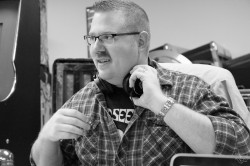

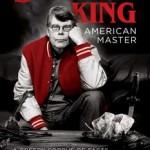

 THE SISTERS OF THE MOON Trilogy – Samantha Chambers
THE SISTERS OF THE MOON Trilogy – Samantha Chambers (Italiano) UNA SPIEGAZIONE PER TUTTO – Gábor Reisz
(Italiano) UNA SPIEGAZIONE PER TUTTO – Gábor Reisz (Italiano) CIVIL WAR – Alex Garland
(Italiano) CIVIL WAR – Alex Garland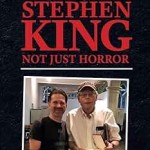 STEPHEN KING NOT JUST HORROR – Hans-Ake Lilja
STEPHEN KING NOT JUST HORROR – Hans-Ake Lilja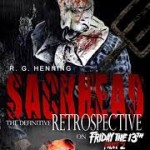 SACKHEAD:The Definitive Retrospective on FRIDAY THE 13th PART 2 – Ron Henning
SACKHEAD:The Definitive Retrospective on FRIDAY THE 13th PART 2 – Ron Henning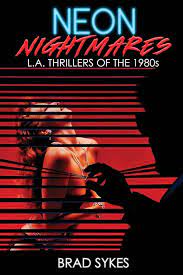 NEON NIGHTMARES: L.A. Thrillers Of The 1980′s – Brad Sykes
NEON NIGHTMARES: L.A. Thrillers Of The 1980′s – Brad Sykes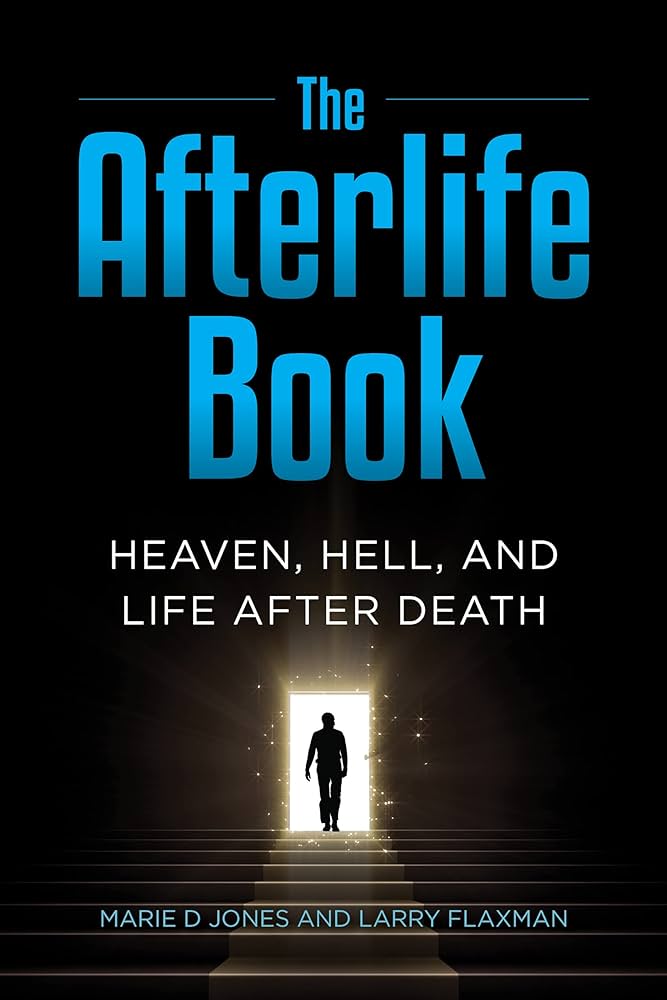 THE AFTERLIFE BOOK: Heaven, Hell, And Life After Death – Marie D. Jones & Larry Flaxman
THE AFTERLIFE BOOK: Heaven, Hell, And Life After Death – Marie D. Jones & Larry Flaxman POPULATION PURGE – Brian Johnson
POPULATION PURGE – Brian Johnson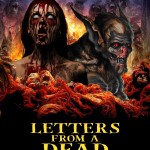 LETTERS FROM A DEAD WORLD – David Tocher (review & interview)
LETTERS FROM A DEAD WORLD – David Tocher (review & interview)